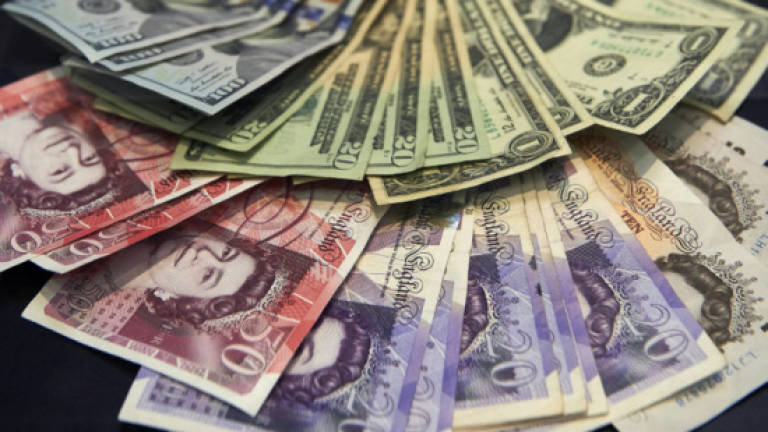British inflation jumps to five-year peak in September

LONDON: Britain's annual inflation rate accelerated in September to the highest level in more than five years, lifted by rising commodity, food and transport prices, official data showed Tuesday.
Inflation has risen sharply this year as the Brexit-hit pound ramped up import costs, placing household budgets under intense strain as wage growth fails to keep pace with rising consumer prices.
The Consumer Prices Index (CPI) 12-month rate climbed to 3% last month compared to 2.9% in August, the Office for National Statistics (ONS) revealed in a statement.
"The main contributors to the increase in the rate were rising prices for food and recreational goods, along with transport costs, which fell by less than they did a year ago," the ONS said.
Key factors were rising commodity prices and the ongoing impact of the weaker pound, which tumbled in value following last year's shock EU exit referendum.
"The inflation rate for a range of goods has ... picked up since the start of the year and the overall rate in the UK is higher than in most other EU countries, including all of the larger western European nations," the ONS said.
"Depreciation may have influenced this but increasing global commodity prices could also be a factor."
The September reading was meanwhile in line with market expectations.
The last time the rate hit 3.0% was in April 2012, while it was last higher in March of the same year when it surged to 3.5%.
"The latest headline figures were boosted by a pick-up in fuel costs as pump prices respond to the recent increase in oil prices," noted ING economist James Smith.
"But more importantly, it is clear that the impact of the pound's post-Brexit plunge is still very much at play.
"Food prices, which are highly influenced by import costs, increased sharply."
The data may meanwhile strengthen the case for a Bank of England interest hike next month, analysts said.
However, they cautioned that the rate decision could be clouded by worries about the economic impact of Britain's looming EU departure, scheduled for March 2019.
"Solid inflation revived speculation that the BoE may raise interest rates as soon as the next monetary policy meeting," said London Capital Group analyst Ipek Ozkardeskaya.
"BoE Governor Mark Carney will testify before the Treasury Select Committee today and is expected to voice his opinion on whether the UK economy could handle higher interest rates through the bumpy Brexit process."
The BoE's key task is to keep annual inflation close to a 2% target. — AFP